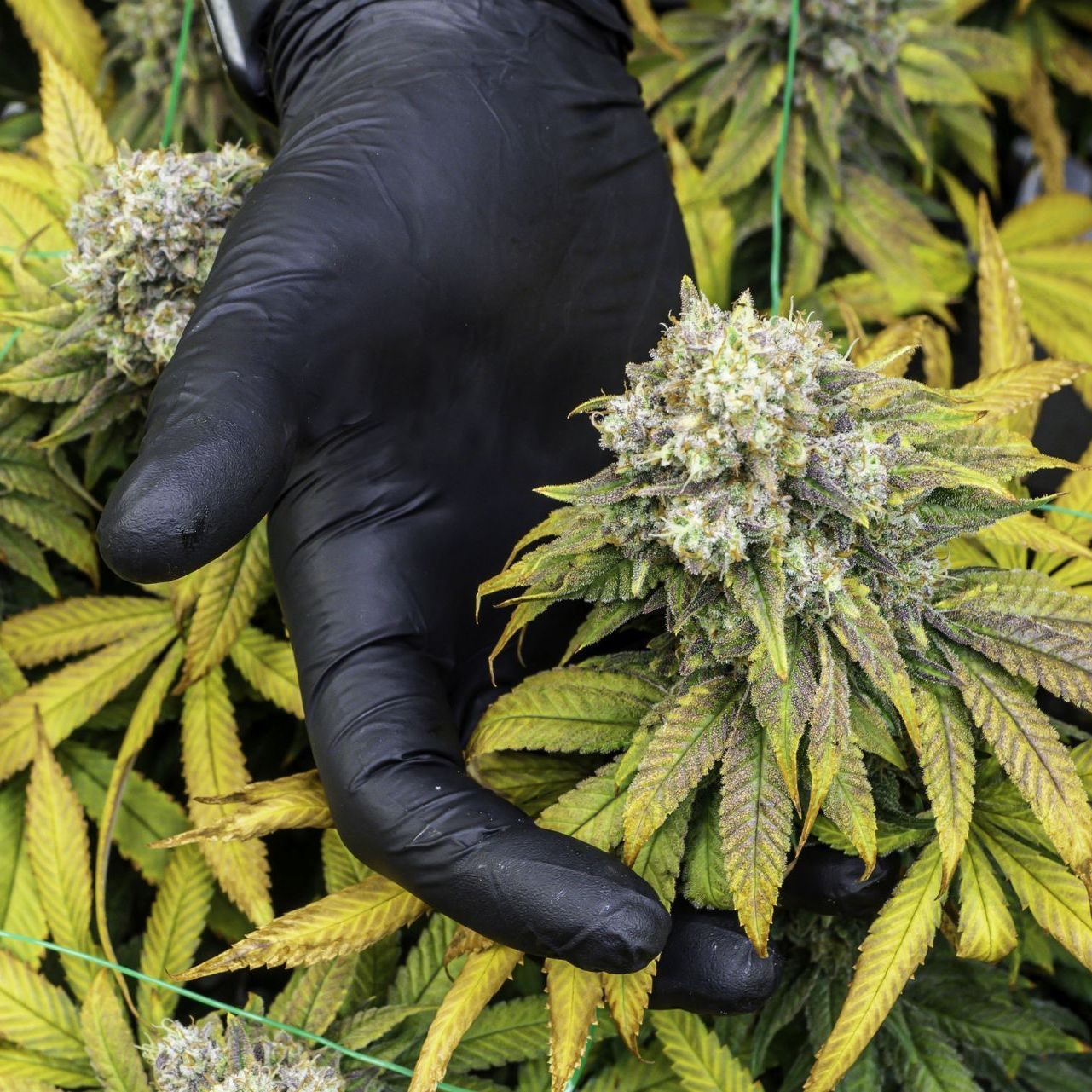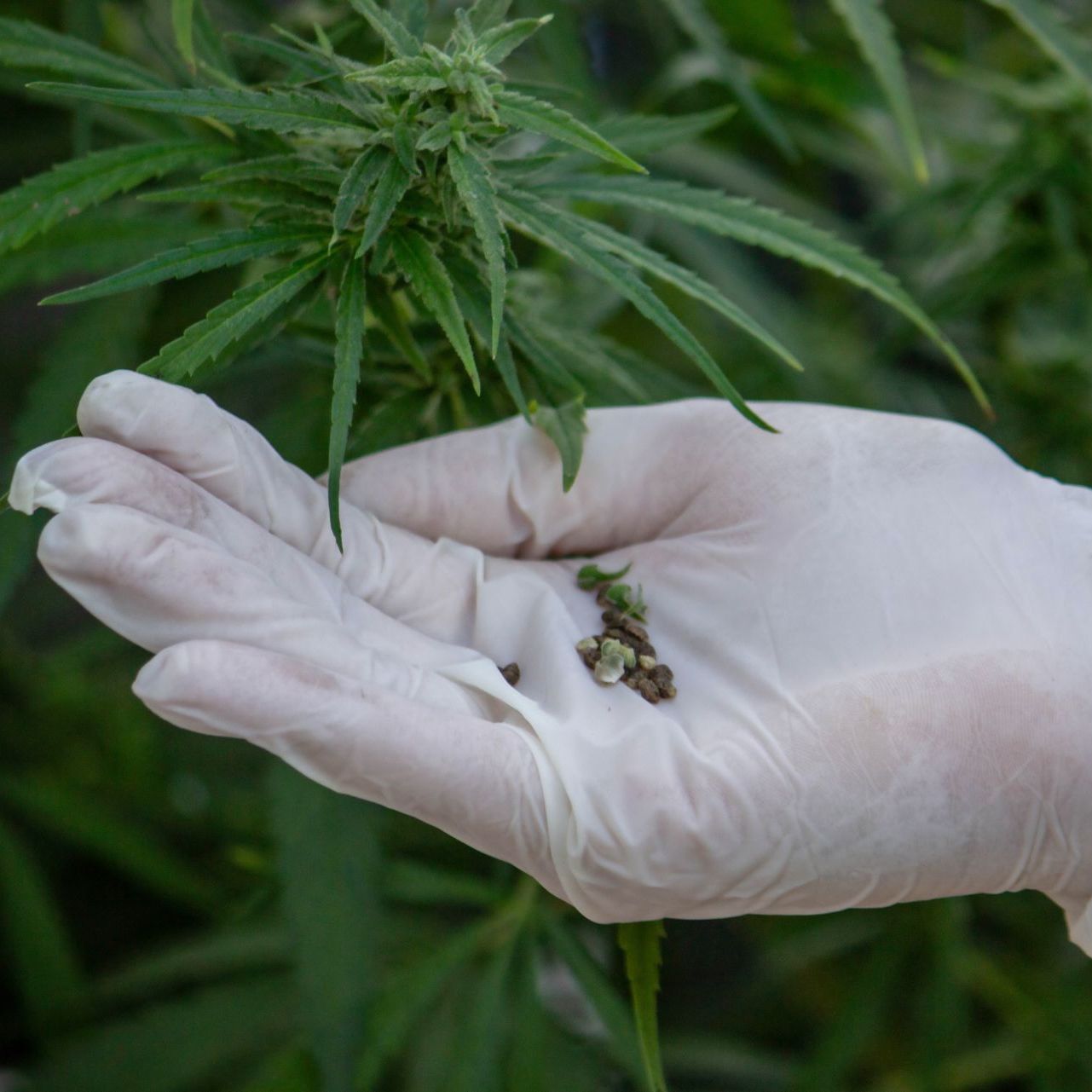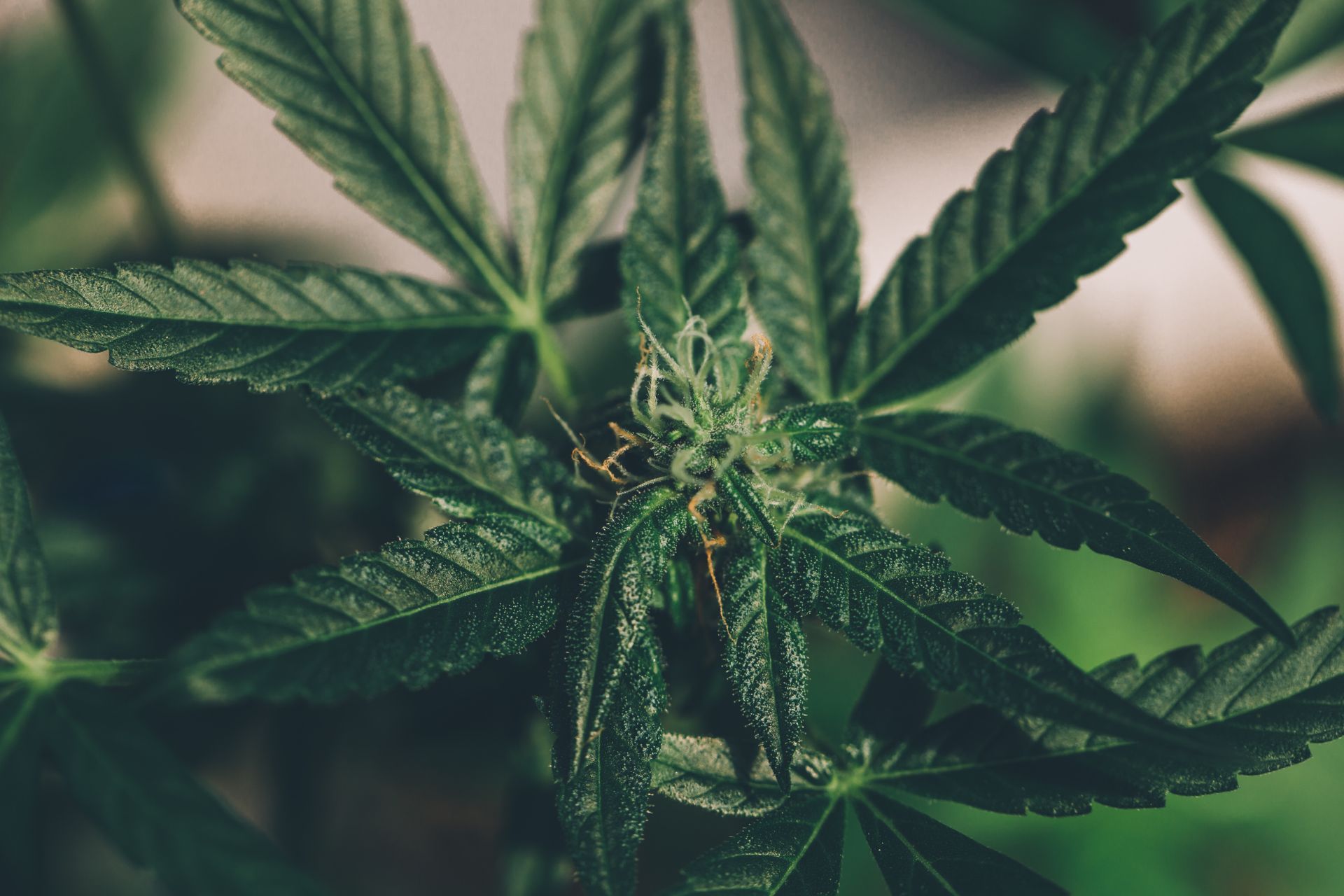Mississippi’s medical cannabis market has grown steadily, with nearly 50,000 active medical cannabis cards as of August 2025. This surge reflects a patient increase of over 41% in just one year, signaling a maturing industry that demands robust insurance solutions tailored to dispensaries and related businesses. Navigating insurance coverage in this evolving sector requires understanding unique risks, regulatory nuances, and cost factors specific to Mississippi’s cannabis landscape. This guide breaks down what dispensary owners need to know about insurance coverage options and associated costs to protect their investments and operations effectively.
For those interested in the latest program growth statistics, the Mississippi Medical Marijuana Association provides detailed insights into patient trends and market dynamics.
Understanding the Insurance Needs of Mississippi Dispensaries
Dispensaries face a complex risk environment. From product liability to property damage and employee safety, the insurance portfolio must cover a range of exposures. Unlike traditional retail businesses, cannabis dispensaries operate under strict state regulations and face additional scrutiny, which can affect underwriting and coverage availability.
Key coverage types dispensaries should consider include general liability, product liability, property insurance, workers’ compensation, and business interruption insurance. Each plays a vital role in shielding the business from financial losses due to lawsuits, property damage, or operational disruptions.
General and Product Liability Insurance
General liability insurance protects dispensaries against claims of bodily injury or property damage occurring on their premises. Product liability coverage is equally critical, especially in the cannabis industry, where adverse reactions or product defects can lead to costly legal claims. Given the medical nature of cannabis products, dispensaries must ensure their policies explicitly cover cannabis-related risks.
Mississippi’s medical cannabis program has seen rapid patient growth, which increases product exposure and potential liability. With approximately 50,000 active patient cards as of August 2025, the likelihood of claims related to product use rises, making product liability insurance indispensable. Additionally, dispensaries should consider implementing rigorous quality control measures and comprehensive staff training to mitigate risks associated with product safety, further enhancing their defense against potential liability claims.
Property and Business Interruption Insurance
Dispensaries often invest heavily in their physical locations, including security systems, inventory, and specialized equipment. Property insurance covers losses from fire, theft, vandalism, and natural disasters. Business interruption insurance complements this by covering lost income during forced closures or repairs.
Given Mississippi’s humid climate and occasional severe weather, property risks are a real concern. Additionally, the cannabis industry’s regulatory environment can lead to unexpected shutdowns or recalls, making business interruption coverage a wise investment. Dispensaries should also consider the potential impact of cyber threats, as digital records and transactions become increasingly common. Cyber insurance can provide an additional layer of protection against data breaches, ensuring that sensitive customer information remains secure and that the business can recover swiftly from any technological disruptions.
Workers’ Compensation and Employer Liability
Mississippi law requires businesses with employees to carry workers’ compensation insurance. This coverage protects employees injured on the job and shields dispensary owners from related lawsuits. Considering the physical nature of dispensary work, including handling inventory and customer service, this insurance is essential.
Employers should also consider employer liability coverage to protect against claims not covered by workers’ compensation, such as harassment or discrimination lawsuits. Furthermore, fostering a safe and inclusive workplace culture can significantly reduce the likelihood of such claims. Regular training sessions on workplace safety and discrimination awareness can empower employees and promote a positive environment, ultimately benefiting both the staff and the business's reputation. As the cannabis industry continues to evolve, staying informed about changing regulations and best practices in employee management will be crucial for dispensaries aiming to thrive in Mississippi's competitive landscape.

Article By: Deb Sculli
Cannabis Insurance Specialist
TruePath Insurance is fully licensed and authorized to provide comprehensive insurance solutions across multiple states.
We proudly serve individuals and businesses nationwide, offering access to trusted regional and national carriers. Our goal is to help clients find reliable, affordable coverage that aligns with their goals—whether for personal protection, business stability, or long-term financial security.
Factors Influencing Insurance Costs for Mississippi Dispensaries
Insurance premiums for dispensaries vary widely depending on several factors. Understanding these can help dispensary owners anticipate costs and tailor their coverage effectively.
Business Size and Patient Volume
Dispensaries serving larger patient populations generally face higher premiums due to increased exposure. Mississippi’s medical cannabis program has expanded from about 31,000 patients in late 2023 to nearly 50,000 by mid-2025, reflecting rapid market growth. This growth means more product sales and higher liability risk, which insurers factor into pricing.
Dispensaries with higher monthly sales volumes or multiple locations will typically pay more for insurance, but they may also qualify for volume discounts or bundled coverage packages. Additionally, larger dispensaries often have more complex operations, requiring specialized insurance policies that can further influence costs. As the market matures, dispensaries may also need to consider additional coverage options, such as product liability insurance, to protect against potential claims related to the safety and efficacy of their products.
Location and Property Characteristics
Insurance costs depend heavily on the dispensary’s location and building features. Urban dispensaries may face higher premiums due to increased crime rates or regulatory scrutiny, while rural locations might benefit from lower rates but face weather-related risks.
Security measures such as surveillance cameras, alarm systems, and secure storage reduce risk and can lower premiums. Insurers look favorably on businesses that proactively manage risks. Furthermore, dispensaries located in areas prone to natural disasters, such as hurricanes or floods, may need to invest in additional coverage to safeguard their inventory and infrastructure. This consideration is particularly pertinent in Mississippi, where weather patterns can be unpredictable, making comprehensive risk assessment essential for effective insurance planning.
Claims History and Compliance
A dispensary’s claims history influences its insurance costs. Businesses with prior claims or regulatory violations may face higher premiums or difficulty obtaining coverage. Maintaining compliance with Mississippi’s medical cannabis regulations is critical.
Mississippi’s medical cannabis law allows annual revisions to adapt to market growth, a flexibility highlighted by industry experts like Mike Watkins of the
Mississippi Independent Cannabis Association. Staying current with these changes helps dispensaries avoid compliance issues that could impact insurance eligibility. Additionally, dispensaries should consider investing in staff training programs focused on compliance and safety protocols, as a well-informed team can significantly reduce the likelihood of incidents that lead to claims. This proactive approach not only enhances the dispensary's reputation but can also lead to more favorable insurance terms and conditions over time.

Market Trends Affecting Mississippi Dispensary Insurance
The Mississippi medical cannabis market is evolving, and insurance providers are adjusting accordingly. Market consolidation and regulatory developments influence coverage availability and pricing.
Market Consolidation and Business Licensing
As of August 2025, Mississippi had 374 licensed medical cannabis businesses, down slightly from 386 the previous year. This consolidation reflects a maturing market where stronger businesses absorb or outlast smaller competitors. For insurers, this trend can mean more stable risk pools and potentially better pricing for well-established dispensaries.
Dispensaries should monitor licensing trends closely, as shifts in the number of competitors and regulatory requirements can impact insurance underwriting. Additionally, the consolidation may lead to a more uniform standard of operations among dispensaries, which could influence the types of coverage available. Insurers may begin to favor businesses that demonstrate compliance with best practices and operational excellence, further incentivizing dispensaries to invest in robust operational frameworks and risk management strategies.
Regulatory Holds and Testing Concerns
In August 2024, the Mississippi State Department of Health placed an administrative hold on all medical cannabis products tested by Rapid Analytics, which accounted for about 70% of state testing. This action raised concerns about product safety and regulatory compliance, factors that insurance companies watch closely.
Such developments can lead to increased scrutiny and potentially higher premiums or coverage restrictions. Dispensaries must maintain rigorous
testing and quality assurance practices to mitigate these risks. Furthermore, the fallout from such regulatory actions can ripple through the supply chain, affecting everything from cultivation to distribution. Dispensaries may need to diversify their testing partners to ensure compliance and maintain consumer trust, which can also impact their insurance profiles. As the market continues to evolve, staying informed about regulatory changes and adapting to them will be crucial for dispensaries aiming to secure favorable insurance terms.
Estimating Insurance Costs for Mississippi Dispensaries
While insurance costs vary, some benchmarks can help dispensary owners plan their budgets. On average, dispensaries might expect to pay between $5,000 and $20,000 annually for comprehensive coverage, depending on size and risk profile.
For context, Mississippi medical cannabis patients spent an average of $196 monthly at dispensaries as of August 2024, illustrating the scale of sales and inventory involved. This volume influences insurance costs as well.
| Insurance Type | Estimated Annual Cost | Coverage Highlights |
|---|---|---|
| General Liability | $1,500 - $5,000 | Premises liability, bodily injury, property damage |
| Product Liability | $3,000 - $10,000 | Claims related to product defects or adverse reactions |
| Property Insurance | $1,000 - $4,000 | Building, equipment, inventory protection |
| Workers’ Compensation | $1,000 - $3,000 | Employee injury coverage, employer liability |
| Business Interruption | Variable | Lost income during closures or repairs |
These estimates serve as a starting point. Dispensaries should seek personalized quotes from insurers familiar with Mississippi’s cannabis market to get accurate pricing.
Moreover, dispensary owners must consider the unique regulatory landscape of Mississippi when determining their insurance needs. The state has specific requirements for cannabis businesses, which can impact coverage types and costs. For instance, dispensaries are required to have certain levels of liability coverage to comply with state regulations, and failure to meet these requirements can lead to fines or even business closure. Engaging with an insurance broker who specializes in cannabis can provide valuable insights into these requirements and help dispensaries navigate the complexities of compliance.
Additionally, the evolving nature of the cannabis industry means that insurance costs may fluctuate as the market matures and more data becomes available. As more dispensaries open and the consumer base grows, insurers may adjust their pricing models based on emerging trends and risks. This dynamic environment underscores the importance of regularly reviewing insurance policies and staying informed about industry developments to ensure that dispensaries maintain adequate coverage as their operations expand.

Tips for Securing the Best Insurance Coverage
Insurance for cannabis dispensaries can be challenging to navigate. Here are practical steps to improve coverage options and control costs.
Work with Specialized Insurance Providers
Not all insurers understand the cannabis industry’s unique risks. Partnering with brokers or companies specializing in cannabis insurance ensures policies are appropriately tailored and compliant with Mississippi laws. These specialized providers often have a deeper understanding of the nuances within the cannabis sector, including the specific types of coverage needed, such as product liability, crop insurance, and property coverage. By leveraging their expertise, dispensaries can secure comprehensive policies that address potential liabilities unique to their operations.
Maintain Strong Compliance and Documentation
Keeping thorough records of licensing, testing, security measures, and employee training helps demonstrate risk management to insurers. This can lead to better terms and lower premiums. Additionally, maintaining meticulous compliance documentation not only aids in insurance negotiations but also serves as a safeguard during inspections or audits by regulatory bodies. By demonstrating a commitment to compliance, dispensaries can enhance their reputation in the industry, which may further attract favorable insurance terms and partnerships.
Invest in Security and Safety Measures
Installing surveillance systems, alarm monitoring, and secure storage reduces theft and liability risks. Insurers reward these investments with premium discounts. Beyond basic security measures, consider implementing advanced technologies such as biometric access controls and employee training programs focused on safety protocols. These proactive steps not only protect the business assets but also foster a culture of safety among employees, which can be a significant factor in reducing workplace accidents and claims.
Review and Update Policies Annually
Mississippi’s medical cannabis regulations allow for annual revisions, reflecting market changes. Regularly reviewing insurance policies ensures coverage keeps pace with business growth and regulatory shifts. This annual review should also include an assessment of any new risks that may have emerged, such as changes in local crime rates or evolving industry standards. By staying ahead of potential risks and adjusting coverage accordingly, dispensaries can avoid gaps in protection that could lead to costly liabilities down the road.
What Mississippi Dispensary Owners Should Keep in Mind
Insurance is a critical part of running a successful dispensary in Mississippi. With nearly 50,000 active medical cannabis cards and a dynamic market, risks are real but manageable with the right coverage.
Understanding the types of insurance needed, factors influencing costs, and current market trends helps dispensary owners make informed decisions. Staying compliant and proactive about risk management not only protects the business but can also improve insurance affordability.
As Henry Crisler from the
Mississippi Medical Marijuana Association points out, the medical cannabis program’s growth is fueled by patient awareness and streamlined access. This growth underscores the importance of having insurance that evolves alongside the industry.
Frequently Asked Questions
Q: Is general liability insurance mandatory for Mississippi dispensaries?
A: While not legally mandatory, general liability insurance is highly recommended to protect against common risks like bodily injury or property damage claims.
Q: How does Mississippi’s medical cannabis program growth affect insurance?
A: Increased patient numbers mean higher sales and greater liability exposure, which can raise insurance premiums.
Q: Can dispensaries get workers’ compensation insurance in Mississippi?
A: Yes. Mississippi requires businesses with employees to carry workers’ compensation, including cannabis dispensaries.
Q: What impact do regulatory holds, like the Rapid Analytics testing issue, have on insurance?
A: Regulatory holds can increase insurer scrutiny and potentially raise premiums or limit coverage until compliance is assured.
Q: How often should dispensaries review their insurance policies?
A: Annually, especially since Mississippi’s cannabis laws allow for yearly revisions to keep pace with market changes.
Q: Are there insurance providers specializing in cannabis businesses?
A: Yes. Working with specialized brokers or insurers familiar with cannabis helps ensure appropriate and compliant coverage.
About The Author: Deb Sculli
I’m Deb, a Cannabis Insurance Specialist focused on helping dispensaries, cultivators, and cannabis-related businesses find the right protection. With a strong understanding of the industry’s regulations and risks, I work hard to simplify the insurance process—so my clients stay compliant and confidently safeguard their operations and investments.
Contact Us
WHO WE HELP
Serving the Cannabis Supply Chain
We cover licensed operators at every stage.
OUR BLOGS
Resources for Cannabis Business Owners
Stay informed and protected with our latest posts.
COMMON QUESTIONS
Cannabis Insurance Made Clear
Answers to the questions we hear most from cannabis business owners.
What types of insurance do you offer for cannabis businesses?
We offer commercial property, general liability, product liability, crop insurance, workers’ compensation, and cyber liability tailored to cannabis operations. These policies address the most common risks, such as crop loss, product claims, and facility damage.
Our agents will help you match the right coverage to your business type and scale, whether you're a dispensary, grower, processor, or distributor.
Why is specialized cannabis insurance necessary?
Standard business policies often exclude cannabis-related activities, which leaves significant exposure gaps. Cannabis-specific insurance covers unique industry risks like product recalls, crop theft, and regulatory compliance.
Having the right policy also satisfies licensing, leasing, and vendor requirements, allowing your business to operate legally and securely.
How does your agency ensure compliance with state regulations?
Many states require proof of specific insurance types before issuing or renewing cannabis licenses. We stay up-to-date on regulatory changes and ensure your policies meet state and local mandates.
That means you avoid surprises during audits or inspections and maintain good standing with licensing authorities.
How fast can I get a quote and bind coverage?
Request a quote and you’ll typically receive a custom proposal within 24 hours. Once you review and accept it, coverage can often be bound the same day, so your business isn’t left exposed.
We streamline documentation and communication to make setup fast and clear—no confusing forms or delays.
Do you support multi-state cannabis businesses?
Yes. We are licensed to operate in 36 states, including major cannabis markets. Whether you’re operating in one state or across several, we can design policies that address your regulatory and risk needs.
As you expand, our team adjusts your coverage accordingly—keeping your protection consistent across state lines.
What should I consider when selecting cannabis insurance?
Begin by identifying your key exposures—crop value, product inventory, employee safety, or cyber data. From there, choose coverage that aligns with these risks instead of opting for a basic or low-cost solution.
Also, look for a provider with cannabis expertise and responsive claims support—this experience helps during actual loss events.
Contact Us
Phone
Address







